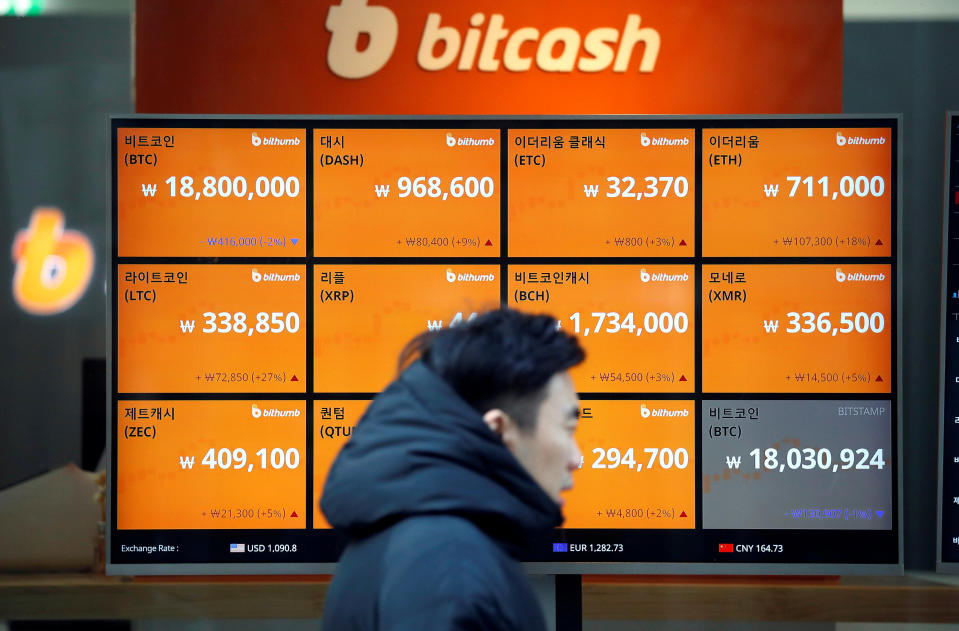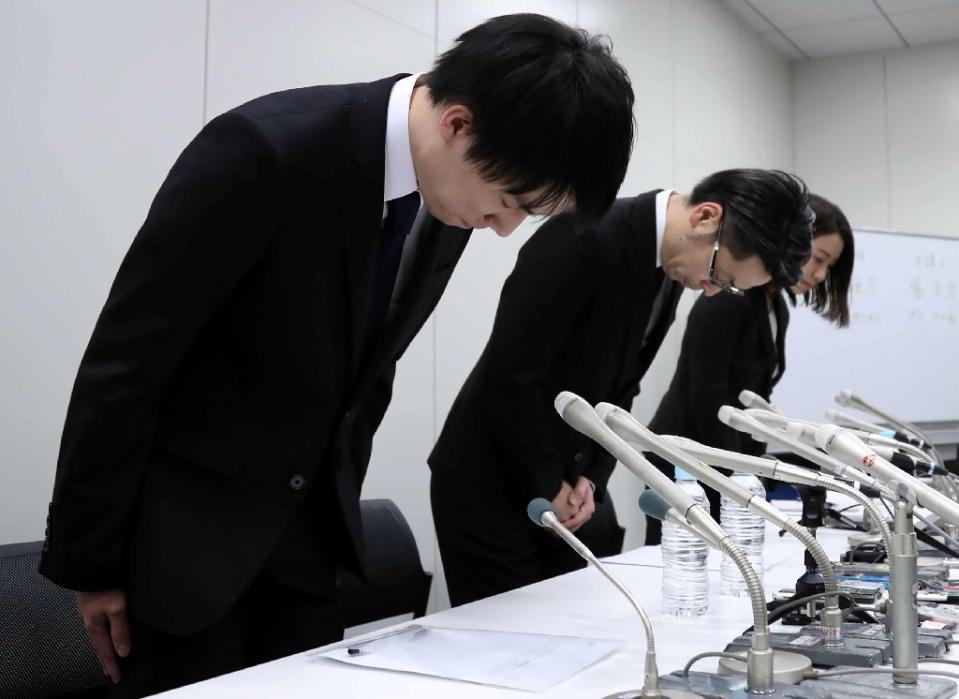Sweeping new cryptocurrency trading rules come into force

Sweeping new rules governing cryptocurrency trading came into effect in South Korea on Tuesday.
The regulations aim to address concerns about fraudulent trading by anonymous players that government ministers believed raised the risk of crime gangs exploiting the cryptocurrency sector.
South Korea’s Financial Services Commission will now only allow trade in cryptocurrencies from real-name bank accounts, starting January 30.
Those rules will enable banks to comply anti-money laundering obligations.
MORE: Nine out of 10 cryptocurrency firms will fold, says Dogecoin founder
The value of bitcoin in particular plunged when the plans were first outlined earlier this month but market watchers said today the introduction had not had any further dramatic impact on prices.
A spokesman for the South Korean cryptocurrency exchange Bithumb, which adopted the new rules today, said operations had “gone smoothly”, adding: “Nothing has changed in terms of coin transaction.”
South Korea had threatened to ban trading in cryptocurrencies entirely but seems, for now, to have stepped back from that as it waits to see how the new rules are applied.
Julian Hosp, co-founder and president of cryptocurrency startup TenX, told CNBC’s The Rundown, that this was the first move to crackdown on illegal use of cryptocurrencies.
“If, afterwards, investors and companies have more legal security working in the ecosystem, it’s going to have some short-term downsides, but long term, it’s going to have a really, really big boost,” Hosp said.

And John Sarson, managing partner at Blockchain Momentum, which invests in cryptocurrencies, said the steps taken by South Korea were addressing areas where the market was lacking in terms of protecting investors.
“It’s a good thing anytime an investment exchange knows their client and makes sure that their clients are doing things that are above board legally,” he told CNBC.
MORE: What is Bitcoin, how do you buy it – and is it a safe investment?
Cryptocurrencies have been very much the darlings of alternative investors and traders over the past year or so, with thousands launching.
The values of most virtual coinage has climbed, no more so spectacularly than bitcoin which reached almost $20,000 at the end of 2017.

However, as authorities in Asia, Europe and North America hinted they were prepared to step in and regulate the sector amid concerns about crime and tax evasion, the value plunged.
Bitcoin fell to as low as $9,200 at one stage – still way ahead of where it stood this time last year – but a dramatic fall from its pre-Christmas highs.
This morning it was trading at around $11,000, according to the Coindesk exchange.
MORE: Japan to punish hacked cryptocurrency exchange Coincheck on Monday
Japanese cryptocurrency exchange Coincheck admitted over the weekend it had fallen victim to a $530m hack where some 523 million units of the XEM virtual currency belonging to 260,000 customers was stolen.
While Coincheck has pledged to pay back victims, it’s not clear how it can or, indeed, if has “real” money to do so.
The hack also emphasised the vulnerability of virtual currencies held by little-known, unregulated ‘banks’.

